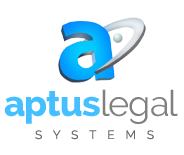Today, the importance of technology, the Internet and new media work and personal interaction, are important to reflect in relation to the actual impact of new technologies and the digital world in the legal profession. And it is that there is no doubt that information technologies have been incorporated fully to the pursuit of his profession, as in many others.
This article aims to present both challenges and opportunities that new technologies pose facing the legal exercise.
Transversal impact on all branches of law
Digital Law is already being considered as a branch within that leafy tree representing legal discipline. Currently as relevant and important issues are heard as the right to be forgotten; new offenses such as stalking, grooming or cyberbullying; crimes against persons and property committed via the Internet; most projection in violations of the right to honor, privacy and self-image through social networks; or the implications of business transactions through the increasingly growing area of electronic commerce or electronic currencies like the BitCoin.
But information technologies not only affect substantive law. In that sense they are also present, and not very relevant way, at a procedural level of the individual orders.
And in the reality of the practice of the courts we are, increasingly, with situations where the evidence in the proceedings are “snapshots”, talks messaging applications or digital files.
But, does the evidence have been provided to procedural due process guarantees? Do these tests really demonstrate the reality of the facts with sufficient legal guarantees? Can you give public faith in the reality of the content of an alleged conversation WhatsApp based on the mere presentation of the terminal to the Judicial Secretary? How should we provide these tests with appropriate safeguards? Can we challenge the evidence presented in this way by the other party? There are many questions and extensive responses that would open an opportunity for a new article.
The lawyer’s office of the Century XXI
The involvement of information technology in different professions, and especially in the legal profession, are already a reality that we can not- nor want- to escape from. The legal profession has always led the management of vast amounts of information of various kinds, labor camps and natures.
We know the importance of proper management of such information for proper analysis of the situation that our client faces, and therefore decisively influences our valuation when planning our strategy.
The information technologies, although they have multiplied exponentially the amount of information we have to process, have presented alongside various tools time management, billing, information, files, etc., available to help us in our productivity in an extremely useful and organized way.
We can manage cases, specific customer inquiries, resolve urgent matters in seconds from anywhere and at any time through the use of technologies.
And the existence of social networks like Twitter, LinkedIn and even Facebook, have also become key tools for legal professionals, both in order to attract customers, as to gain valuable segment information for topics of interest, or even collaborate with other professionals.
Last but not least, the increasingly functional databases of jurisprudence, systems knowledge management as Mementos, and tools for integrated management of the office are elements within our reach and all essential to the efficient and successful case performance practice of law and improving the productivity of our offices.
Today is a very exciting time, full of challenges and questions, with too much information at hand and little time to process, but with the opportunity to actively participate in solutions and answers to them, quickly, securely and in any moment. The technology in the legal branch is simply a tool to help us carry out our work effectively, efficiency, with professionalism and organization, a tool that is increasingly becoming more essential, and that every time is proposing new learning.
